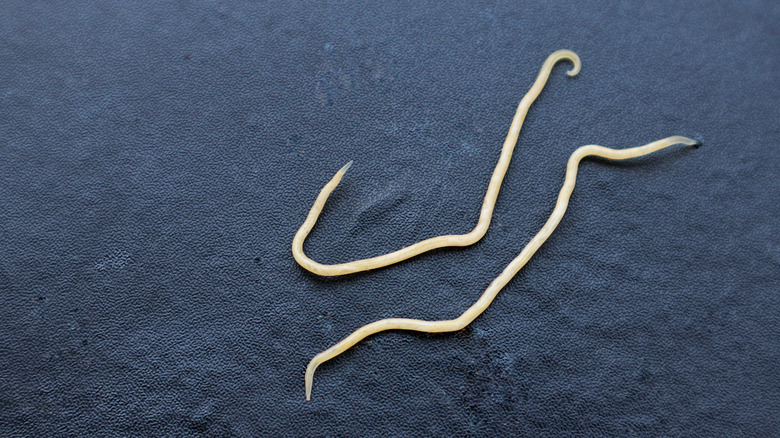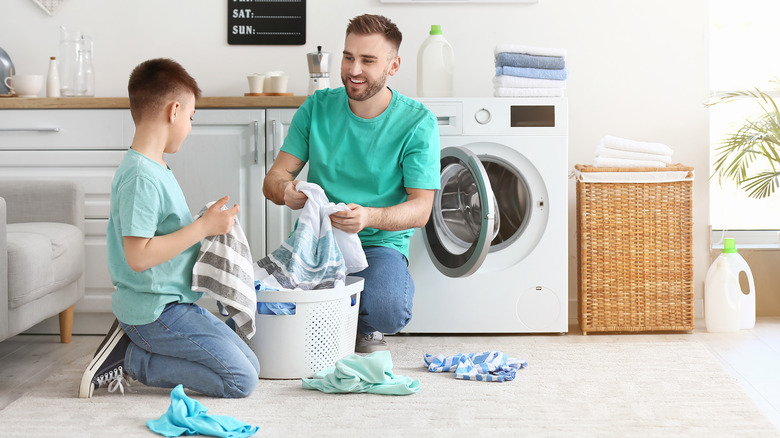Simple Tips To Help Prevent Pinworm Infections
The thought of having intestinal worms may make your skin crawl (no pun intended). In the United States, it's typical for an intestinal worm infection to be caused by pinworms, according to Mayo Clinic. These small worms that grow to a maximum length of half of an inch often cause itching in intimate areas of the body, such as the genitals and buttocks, which certainly doesn't make the thought of these tiny intestinal worms infecting your body any better. Because you probably don't want pinworms anywhere near you, following tips and advice for preventing pinworm infections is of the foremost importance.
Young children are the most likely to experience pinworm infections and are also prone to exposing others in their households to pinworm infections (via Healthline). Since babies, toddlers, and school-aged children are the premier demographic for pinworm infections, the surfaces they touch are also the most likely to contain pinworm eggs that could lead to other people becoming infected. When it comes to cleaning and sanitizing with a mindset of defeating pinworm infections, the surfaces that are most important to clean are toys, underwear, toilet seats, bedding, bathtubs, and any surface touched by unwashed hands. Given that pinworms cause an itchy sensation between the buttocks, it may be difficult for children to avoid scratching the area and, therefore, end up with pinworm eggs beneath their fingernails that can then be transferred to surfaces they touch. To prevent pinworm infections, here's how to prioritize hygiene habits for the entire household.
Hygiene is the key for preventing pinworms
Your hygiene habits are extremely important when it comes to preventing pinworms, especially if someone in your household has recently experienced pinworms. According to Healthline, prioritizing the hygiene of your hands is essential, from cutting fingernails so pinworm eggs can't sneak underneath to washing hands with warm water and antibacterial soap after every trip to the bathroom or after changing a child's diaper. Habits like biting fingernails or touching the area around your face can increase the likelihood of pinworm eggs entering your body, so try to nip these habits as soon as possible.
The Centers for Disease Control and Prevention (CDC) recommend that if a household member has recently been infected with pinworms, everyone in the home should take warm showers each morning to flush out any pinworm egg deposits on the body from the night before. Baths should be avoided because the still water can allow for recontamination or the spread of pinworms to those in the bathtub. During or immediately after a household infection of pinworms, be sure to wash in warm water all overnight clothing, pajamas, pillows, and bedding to ensure that pinworm eggs don't continue to live on linens or fabric. When your household is pinworm-free, continue to practice these hygiene habits to keep pinworms away and significantly decrease your chances of experiencing an intrusive pinworm infection.


